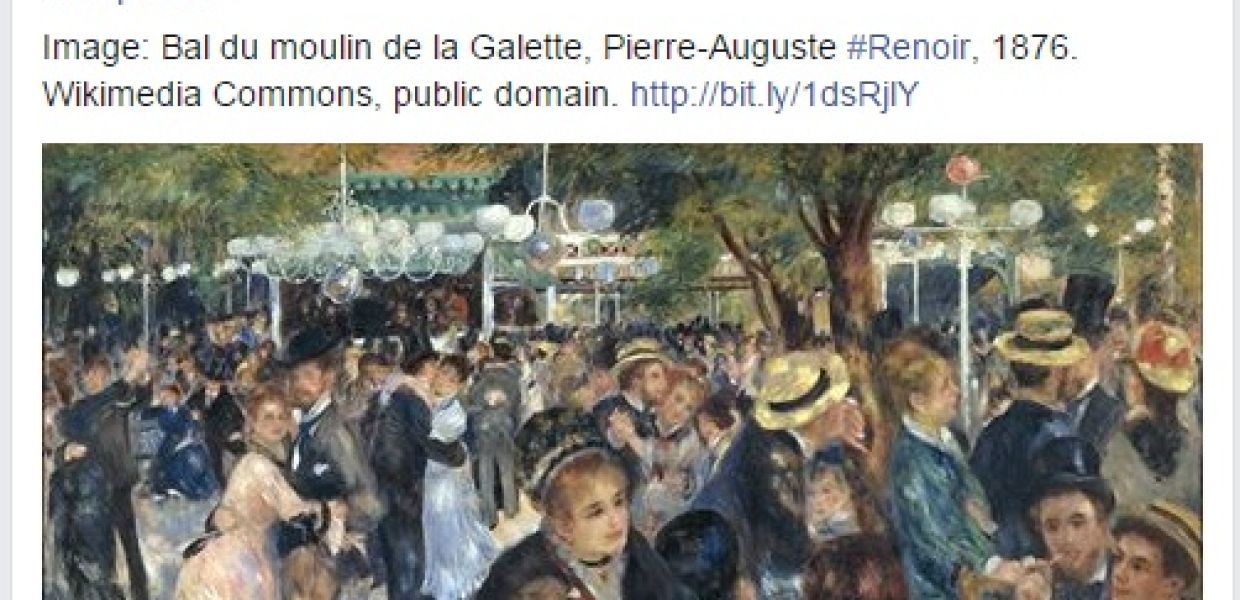Writing history one Facebook status at a time

Europeana says it’s a ‘trusted source of cultural heritage’ that allows you ‘to explore Europe's history from ancient times to the modern day’ (Europeana - About Us). But what does that actually mean? And, heck, what a responsibility!
Like any museum, Europeana has a very small proportion of its collection of 40 million items on show. Less than 1% can be shown on the website’s homepage, exhibitions or on social media. Can that 1% really demonstrate the breadth of Europe’s history and heritage?
By choosing which photo to post on Facebook or which celebrated inventor to blog about, we are not shining a light on Europe’s history, we are writing it.
We have so much to choose from. From Ancient Greece to the modern day. From within Europe. From outside of it. Texts. Ceramics. Clothing. Art. Video. Photography. Sounds...
And this is still only a subset. It has already been whittled down by ancient collectors, by modern curators, by digitisers, by policy-makers who may or may not push for digitisation in their country.
So, how do we make our choice?

Europeana Facebook post from 5 March. Cartographer from 'The Temple... with engravings after Albert Dürer' The British Library. Public Domain
It’s not a free choice. We often start by looking at anniversaries - birthdays of the famous, international days of commemoration. So, given a few years, themes occur. Christmas. World Peace Day. History takes on a cyclical nature.
Then we have the influences and limitations of our own busy lives. A blogger probably doesn’t have the time or inclination to spend hours researching some obscure figure from history they’re not interested in, but can quickly put together something about a favourite famous writer. The search on Europeana is easier. The search on Wikipedia or Google is easier. Obscure is do-able, just not as often.
And this isn’t just a philanthropic task. It’s about getting clicks. On the blog. On the Facebook post. On the Europeana listing we’re highlighting. So we have to pick something people will like quickly (see this blog on the ‘SPEED’ method of selection). Faces are good. Famous faces are even better. So, Mozart’s in. Stanisław Studziński isn’t. (Who? Exactly!)
So although we might love to present a full picture of our shared history and heritage, we do not. Instead, we give you headlines, nice pictures to catch your eye.

A typical Europeana Facebook post celebrating a significant anniversary. This one - Renoir’s birthday.
This is nothing new. Writings of history have never been neutral, objective or all-encompassing, however hard we try. Take our Facebook activity as an example.
Imagine you’re an alien and the only information you have about European history and culture comes from Europeana’s Facebook page. What would it look like?
I looked at Europeana’s Facebook posts for a month (Feb 6 - March 5). Here’s how the world looks…
I see people. Only two posts show me landscape or animals. So, history is human.
And history is dark. I see the world in black and white, little colour.
I see scientists and inventors, a few painters and the odd writer or musician.
I see men everywhere. The only women are unnamed, in group portraits. They have no place amongst men like Vivaldi, Klimt, Darwin and Galileo.
And everyone (bar two Indian lovers in one painting) is white.
If my knowledge of European history comes from Facebook then I think time began in the 15th century, but really got going in the 19th. And the 20th, wow, what a time!
Europe is made up of the UK, the Netherlands, Italy and France. There are less important places too - Poland, Norway, Germany, Lithuania, India and the USA.

Children pose with tooth-brushes in their mouth in a school building as part of a tooth-brush drill in ca. 1920. Wellcome Library, CC BY
I’m being obtuse, of course. I looked at just one month of posts. But as the saying goes, one month is a lifetime on Facebook.
The Facebook coverage gives us a fairly traditional view of history. It’s history as told to us through mainstream education and media - it’s male, it’s white, it’s about western Europe, it’s recent.
And what’s wrong with that? Does history need to be representative of everyone that lived it and every time they lived through? Shouldn’t we remember just the highlights, the main characters - the things that actually made a difference? And if we make an effort to represent everyone equally, are we actually then misrepresenting history? After all, people have never been each other’s equals.
I’ve focused on Europeana here but the same principle applies more widely. By selecting some items, themes and personalities instead of others, you create a story, a representation of the world. History isn’t something that’s set in stone. It’s being written and re-written all the time. By all of us.
Which history do you choose?
Beth Daley (@cakesandcopy) is a freelance creative and professional writer and editor and former PR & Editorial Officer for Europeana. Her debut novel ‘Blood and Water’ is published by Hic Dragones.
